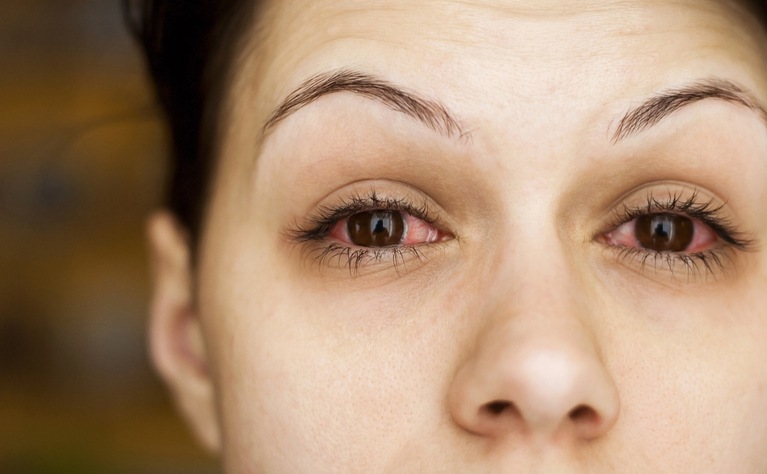
Scleritis is inflammation of the sclera - the white of the eye. Although it has a similar sounding name and similar appearance scleritis is more serious - and rarer - than episcleritis. If left untreated it can lead to visual impairment.
Having a systemic disease - such as inflammatory bowel disease (IBD) - makes it more likely that you will suffer from scleritis. However, it’s important to remember that it is still a rare condition.
For some people finding out they have scleritis is the first sign that they have another disease such as an autoimmune condition or connective tissue disorder.
It can affect one or both eyes.
The symptoms of scleritis may include:
If you notice any changes to your eyes it is important that you see a doctor or eye specialist. Scleritis is diagnosed using a special microscope and light (slit lamp). Your medical history will also be taken into account to determine the cause of the scleritis.
In many cases episodes of scleritis mirror IBD disease activity - so if you are having a flare of your Crohn's disease or ulcerative colitis you may be more likely to experience scleritis. Although in some cases it can occur independently of disease activity.
Due to this treatment tends to focus on the underlying condition which is believed to have caused the scleritis.
Many of the traditional treatments for scleritis are also the same treatments used to treat IBD - steroid medication, immunomodulators or biological drugs (such as infliximimab and adalimumab). Topical eye drops may also be given. This are used anti-inflammatory (such as steroid drops or nonsteroidial anti-inflammatory drops (NSAIDs)). Steroid injections near the eye may also be used. In some rare cases surgery is used to repair damage to the sclera if thinning has occurred.
What complications can occur with scleritis?
Scleritis can lead to inflammation of the cornea (keratitis), uveitis, glaucoma, cataract, retinal swelling, peripheral corneal shinning and retinal macular swelling.
It can also lead to thinning of the sclera. If the sclera becomes too thin a hole in the side of the eye may develop leading to severe vision loss or blindness.
If steroid eyedrops are used long-term as a treatment they may lead to a cataract and/or glaucoma.